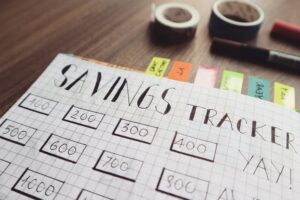 New Year, New Financial Goals
New Year, New Financial Goals
The journey to financial freedom has to begin somewhere. The truth is, it is never too late to start planning for your future, even if you are swimming in a pool of debt, or even if you are close to the point of bankruptcy.
With New Year’s around the corner, it’s the perfect time to set new goals and resolutions. If financial freedom is one of them, keep reading. While achieving this goal requires ongoing effort, there’s no better time to start than now.
Debt can become a never-ending cycle without a proper plan. You have two choices:
- Give up and stop paying altogether.
- Pay what you can afford and do your best to stay current.
The choice you make has a significant impact on your financial future, especially if you’ll need a loan for something like a new home or car.
The Consequences of Delinquent Debt
A delinquent debt drastically affects your credit and your ability to borrow in the future. Trust between a lender and borrower is determined by credit history and ratings. If you’re already dealing with delinquent accounts, the first step is to speak with a professional debt settlement company to explore your options.
Avoiding Debt in the Future
To avoid debt problems, don’t borrow more than you can afford to repay. While unforeseen issues may arise, you can still add a ‘safety net’ to your repayment budget. The key to staying debt-free is borrowing only when absolutely necessary and ensuring you can repay comfortably within a short timeframe.
Using Credit to Your Advantage
Credit cards and loans don’t have to be negative. You can benefit from them by:
- Paying more than the minimum monthly amount to close the debt faster.
- Using your credit card for budgeted necessities, like gas, groceries, or utilities, and paying off the balance in full each month.
Recognizing the Causes of Debt
People in debt often face:
- Major unforeseen emergencies.
- Living beyond their means.
- A combination of both.
Most Americans encounter debt at some point in their lives. The key is to manage it wisely to avoid its long-term stress and repercussions.
Steps to Begin Your Financial Freedom Journey
- Track Your Expenses
-
- List all monthly expenses, including subscriptions, utilities, groceries, and other necessities.
- Add a buffer for unexpected costs like medical emergencies or gifts.
-
- Evaluate Your Budget
-
- Subtract your total expenses from your monthly income.
- If you have money left, save it or apply it toward debt repayment.
- If not, reevaluate your spending to cut unnecessary expenses.
-
- Save Wherever Possible
-
- Use coupons, deals, and apps like GetUpside for gas or Fetch for receipt rewards.
- Cut expenses by questioning the importance of non-essential items.
-
- Consider Consolidation
-
- If your loans are current, consider a consolidation loan to lower interest rates and reduce monthly payments.
-
- Seek Professional Help
-
- If you’re behind on payments, in collections, or your accounts have been shut down, seek help from a debt settlement company.
- Debt settlement involves negotiating a reduced payoff balance, saving you money and stress.
-
Crafting a Financial Plan
-
- Set Clear Goals
Write down your financial goals, future purchases, and desired accomplishments. This will help you stick to your budget. - Create a Debt Savings Plan
Calculate expenses and decide how much you can apply to debt repayment and savings.
- Set Clear Goals
Project your progress over 12 months to stay motivated.
Start Your Journey Today With Encompass Recovery Group
No matter your financial situation, there’s always hope. professional debt relief specialists can help you calculate your budget and find manageable payment plans.
Knowing your goals and planning to achieve them is half the battle. The second half is sticking to your budget and plan to see real results.
Financial freedom isn’t just a dream—it’s achievable for anyone, even those deep in debt. By making a resolution to save more and handle your debts, you’re taking meaningful steps toward a better financial future.
Writing down your goals and creating a plan helps clarify the path forward and keeps you motivated. Make your New Year’s resolution to achieve financial freedom a lifetime goal.
If you need assistance, reach out to Encompass Recovery Group today to start your journey to becoming debt-free!

